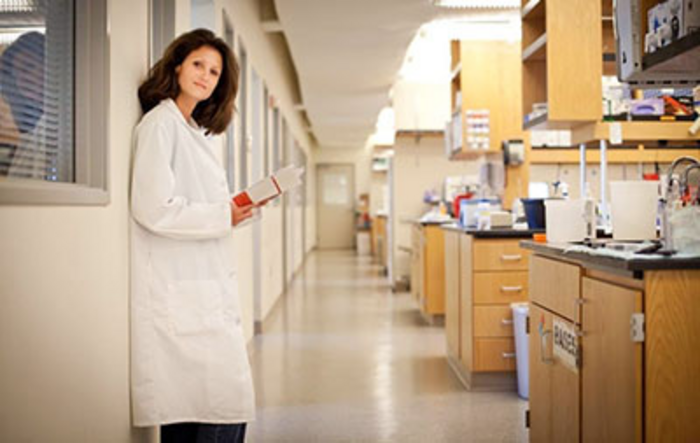Friedreich’s ataxia (FA) is an inherited, degenerative neuromuscular disorder that initially impairs motor function, such as gait and coordination, but can lead to scoliosis, heart disease, vision loss and diabetes. Cognitive function is not affected. One in 50,000 Americans has FA.

Credit: UC San Diego Health Sciences
Friedreich’s ataxia (FA) is an inherited, degenerative neuromuscular disorder that initially impairs motor function, such as gait and coordination, but can lead to scoliosis, heart disease, vision loss and diabetes. Cognitive function is not affected. One in 50,000 Americans has FA.
“It’s a terrible disease with no treatment,” said Stephanie Cherqui, PhD, associate professor in the Department of Pediatrics at UC San Diego School of Medicine. “It’s a progressive disorder that leads to loss of motor skills and muscle degeneration, and ultimately inability to walk within 10 to 15 years of onset. Heart abnormalities can also cause premature death. The average age of death is usually in the mid-thirties.”
Cherqui conducts research in search of a treatment for FA, specifically the potential of gene therapy to repair or replace the mutated gene that causes the disorder. In 2017, she published findings that showed a single infusion of wildtype hematopoietic stem and progenitor cells (HSPCs) into a mouse model of FA measurably halted cellular damage, suggesting a therapeutic approach to a disease currently considered incurable.
In 2020, Cherqui and colleagues published findings that specifically described how CRISPR-Cas9 gene editing of hematopoietic stem cells from patients with FA could work. Hematopoietic stem cells are capable of developing into all types of blood cells. CRISPR-Cas9 is a technology that allows scientists to edit parts of the genome by removing, adding or altering sections of the DNA sequence.
On November 29, 2022, the California Institute for Regenerative Medicine (CIRM) awarded Cherqui and colleagues a grant of $4.8 million to move this approach closer to clinical trials. The funding will be used to develop a therapy based on gene-edited hematopoietic stem and progenitor cells derived from FA patients, which would be re-infused as a one-time, lifelong treatment.
“If successful, this approach could prevent the neurologic and cardiac complications in FA,” said Cherqui, “and address the pressing and systemic unmet medical needs for this disease. This kind of gene therapy transplantation has never been tested for FA or any other mitochondrial disease, so in this sense, it’s unique.”
Cherqui added that using gene-editing technology, such as CRISPR/Cas9, to remedy FA could also generate new perspectives applicable to other diseases involving mitochondrial dysfunction.
CIRM also announced a $4 million grant to Mazhi Therapeutics, a California-based biotechnology company developing treatments for rare genetic neurodevelopmental disorders. The funding will support development of a gene therapy for the treatment of Pitt-Hopkins Syndrome, an extremely rare genetic neurological disorder that results in intellectual disabilities, impaired speech and breathing problems in children.
Mazhi has licensed technology developed at UC San Diego. Earlier this year, Alysson R. Muotri, PhD, professor at UC San Diego School of Medicine, director of the UC San Diego Stem Cell Program and member of the Sanford Consortium for Regenerative Medicine, and colleagues published research describing how the use of gene therapy tools and human brain organoids were able to reverse the effects of the gene mutation that causes Pitt-Hopkins. Muotri will serve as a consultant to Mazhi.
“The idea is that Mazhi will perform all of the in vivo toxicology work to make sure the gene therapy approach is safe for humans so that we can move this closer to a clinical trial,” Muotri said.
# # #




